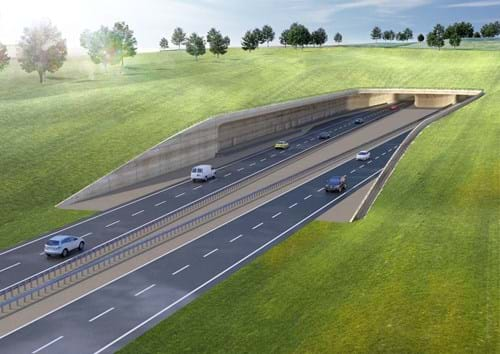
An English transport official has approved a roadway tunnel to run underneath Stonehenge, the latest development in a years-long saga over how to address a congested road passing by the site.
The two-mile, £1.7 billion ($2.2 billion) project has elicited predictably vehement opposition among preservationists. While it promises to put passing cars out of sight and hearing, preservationists say it could do damage to the archaeologically and environmentally rich area.
Transport secretary Grant Shapps overruled a recommendation by independent planning inspectors. Their report warned of “substantial harm” to cultural heritage as well as the surrounding landscape and the World Heritage Site’s visual impact, reports the Guardian. The report by the Planning Protectorate, which says that the damage could be “permanent” and “irreversible,” was was kept private for 10 months, only coming to light now.
Critics call the decision “mind-blowing” and “head-bangingly stupid,” and a druid who claims to be an incarnation of the king of England has pledged to lie down before the bulldozers, reports the Guardian. The move was originally planned for July, but was pushed back after the discovery of a series of shafts dug into the earth just two miles from the site.
The busy A303 highway currently has two lanes running in opposite directions, and supports twice as much traffic as it was intended to, according to Highways England, the organization that designed the proposed tunnel, which will be built 55 yards farther from the 5,000-year-old monument than the existing road.
English Heritage, the nonprofit that cares for more than 400 historic monuments including Stonehenge, has voiced its approval, with CEO Kate Mavor saying that “Placing the noisy and intrusive A303 within a tunnel will reunite Stonehenge with the surrounding prehistoric landscape and help future generations to better understand and appreciate this wonder of the world.”
The Stonehenge Alliance, formed to stop the project, has gathered more than 150,000 signatures on its petitions voicing opposition. Opponents have six weeks to challenge the decision in court.
Construction may start as early as 2023, according to Highways England.